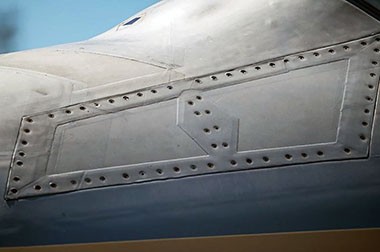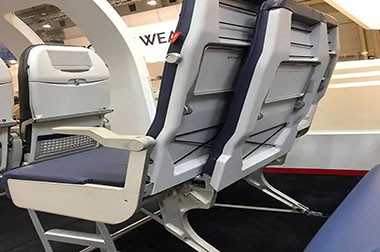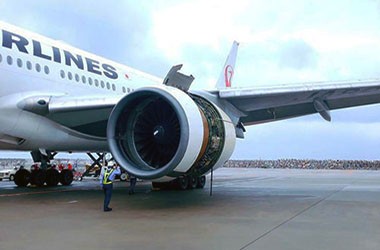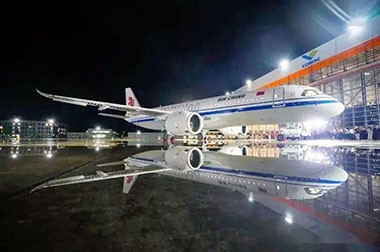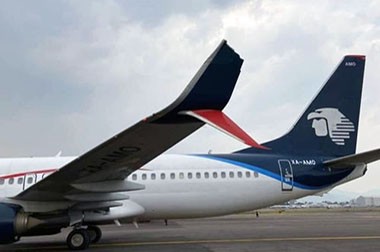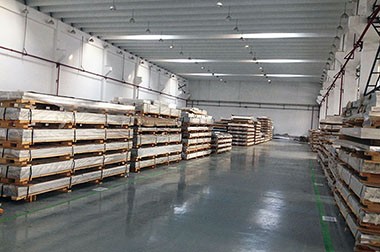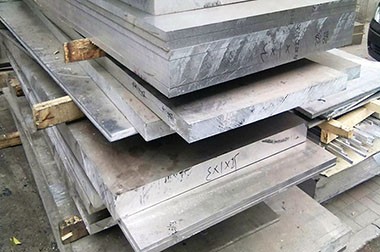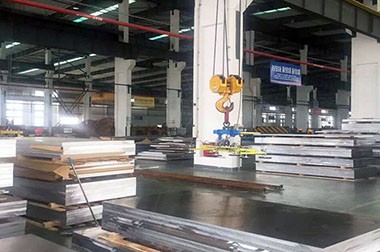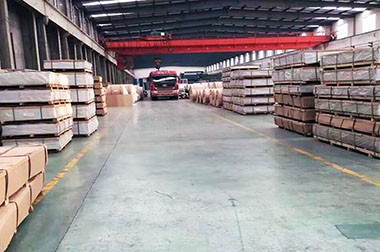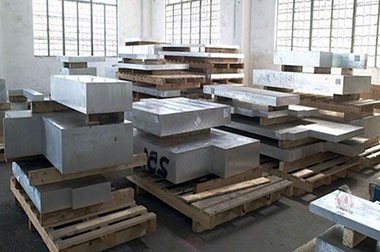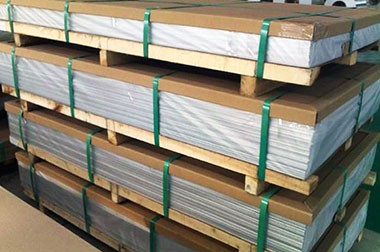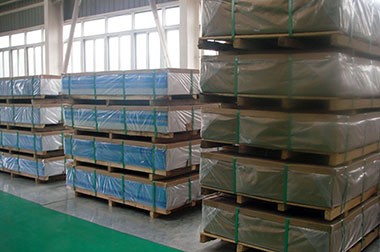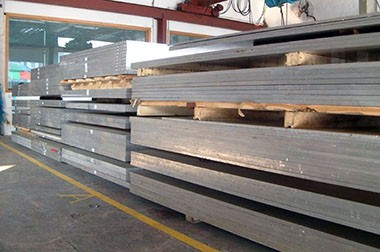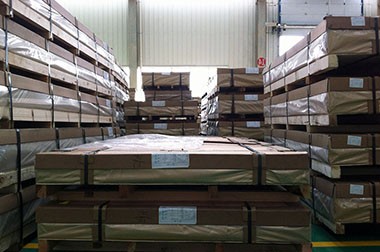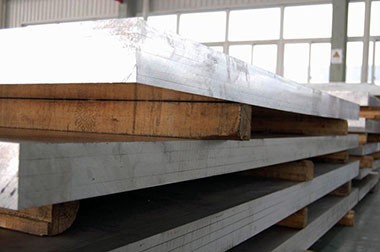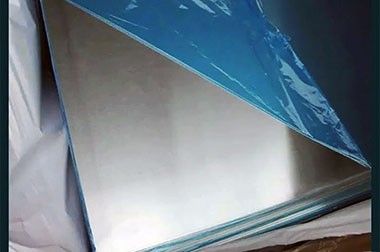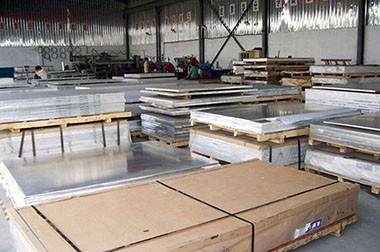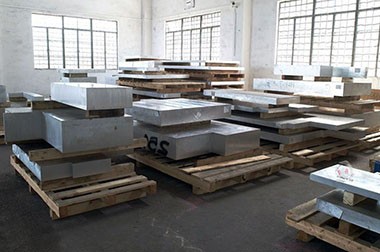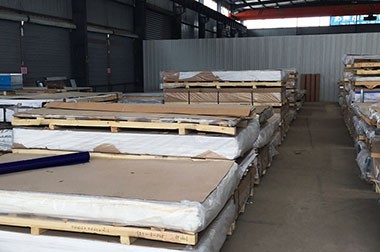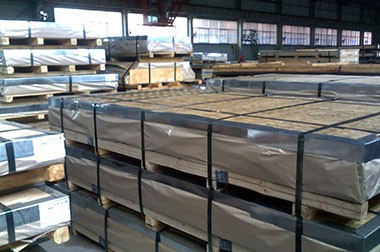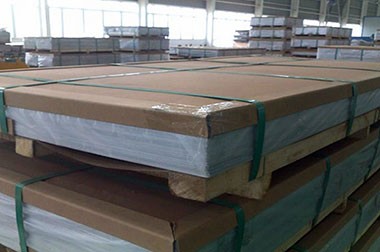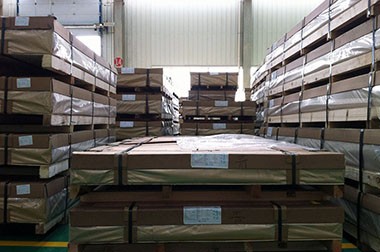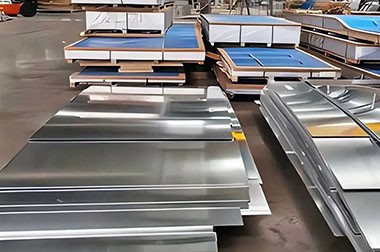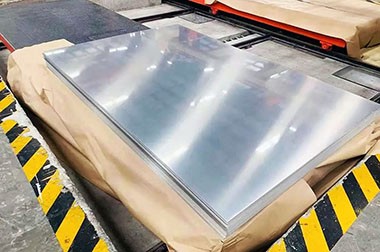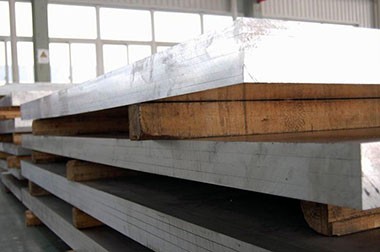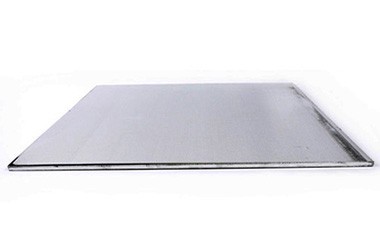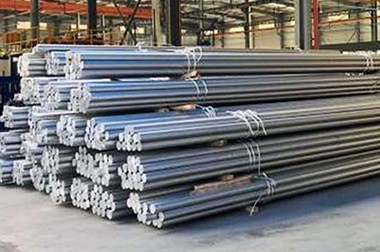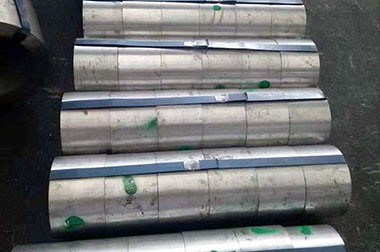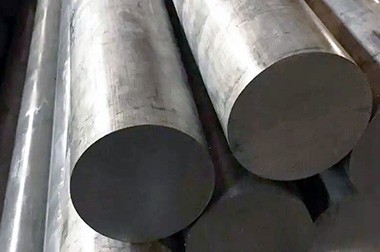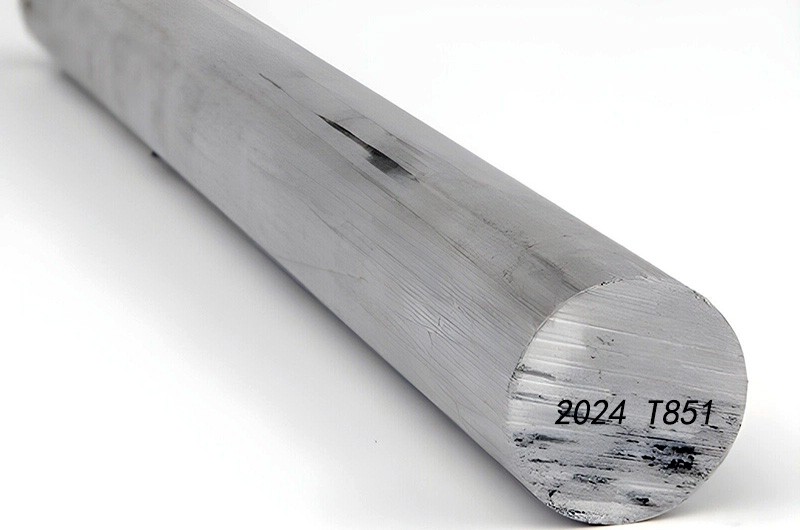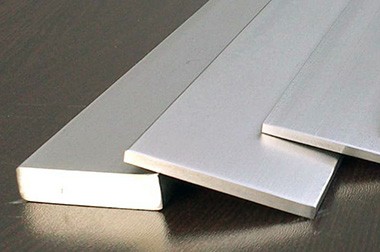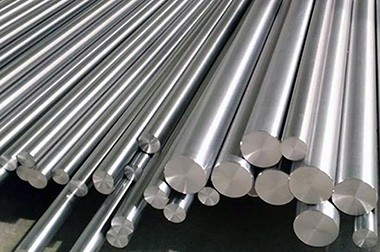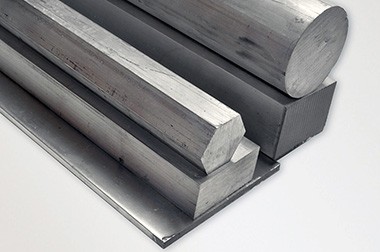2024 T3 Alclad Aluminum Sheet
2024 T3 Alclad aluminum plate is a special material that combines the strength and corrosion resistance of aluminum alloys with advanced surface treatment to enhance its performance in various applications.
The strength and ductility of 2024 aluminum alloy are combined with the corrosion resistance of the Alclad coating. It is suitable for applications that require structural integrity and long-term durability.
2024 T3 Alclad aluminum plate is a high-performance material, widely used in aerospace and other demanding industries due to its excellent strength, formability, and corrosion resistance.
- T3 Condition: The "T3" condition is a solid solution heat-treated, cold worked, and naturally aged state. This condition provides a good balance of strength and medium workability. Compared to other alloys like 6061, 2024 aluminum treated in the T3 condition has significantly higher strength but may have slightly reduced corrosion resistance.
- Alclad: Alclad is a process where a thin layer of high-purity aluminum is bonded to the surface of the alloy. This cladding improves the material's corrosion resistance, especially in environments where the alloy may be prone to corrosion. It essentially serves as a protective corrosion-resistant layer, allowing the 2024 alloy to maintain its strength while providing better oxidation protection.
The material meets the following standards: ASTM-B209, AMS-QQ-A-250/5, AMS-4462
2024 T3 Alclad aluminum sheet is a high-performance aluminum alloy designed specifically for aerospace, aviation, and other high-strength, lightweight applications.
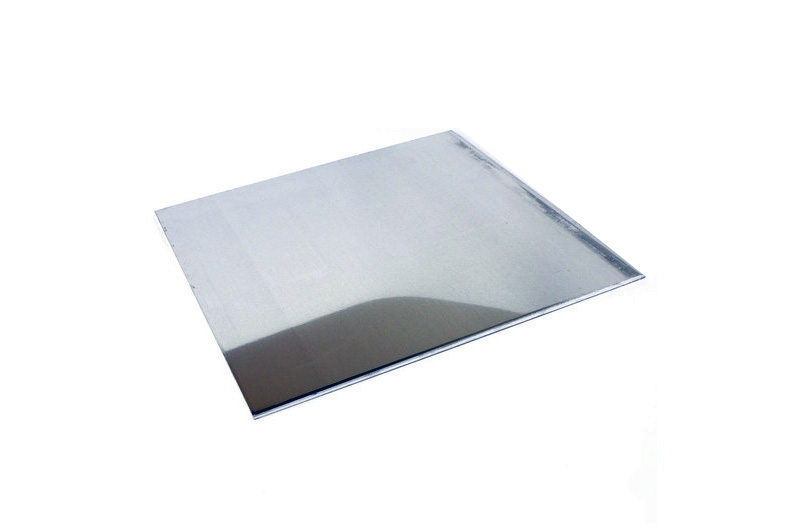
2024 T3 Alclad Aluminum Sheet Properties
| Property | Description |
| Corrosion Resistance | The Alclad layer enhances corrosion resistance, particularly atmospheric corrosion resistance, making it an ideal choice for aerospace applications exposed to extreme conditions. |
| Formability | Good formability in the T3 condition, but may be more challenging to process compared to alloys like 6061, which have greater ductility. Suitable for applications requiring high strength and precise structural integrity. |
| Fatigue Resistance | Excellent fatigue strength, a key factor for aircraft components subjected to repeated stress cycles. |
| Weight | As with all aluminum alloys, it is lightweight compared to other metals with similar strength. |
2024 T3 Alclad Aluminum Sheet Mechanical Properties
| Property | Value |
| Ultimate Tensile Strength KSI | 70 |
| Density g/cm^3 | 3 |
| Yield Tensile Strength KSI | 50 |
| Brinell Hardness 500 kg load | 120 |
| Rockwell Hardness B Scale | 75 |
| Shear Strength KSI | 41 |
| Elongation % in 2 in. | 18 |
| Electrical Conductivity % IACS | 30 |
| Machinability % | 70 |
| Melting Point °F | 935 - 1180 |
Chemistry Information 2024 Aluminum
2024 is a high-strength aluminum-copper alloy in the 2xxx series. Copper increases strength but decreases corrosion resistance, thus requiring protective cladding.
| Element | Percentage |
| Al | 93.5 |
| Cr | 0.1 max |
| Cu | 3.8 - 4.9 |
| Mg | 1.2 - 1.8 |
| Fe | 0.5 max |
| Mn | 0.3 - 0.9 |
| Si | 0.5 max |
| Zn | 0.25 max |
| Ti | 0.15 max |
2024 T3 Alclad Aluminum Sheet Features
- Alclad Coating: "Alclad" refers to a thin pure aluminum coating applied to the surface of the sheet. This protective coating offers excellent corrosion resistance, especially in atmospheric conditions, making it an ideal choice for aerospace applications.
- T3 Condition: The "T3" condition indicates that the alloy has undergone solution heat treatment and cold working to enhance strength. It is typically used for applications requiring moderate strength and excellent formability.
- Strength and Durability: 2024 T3 Alclad aluminum offers an outstanding strength-to-weight ratio, especially compared to other aluminum alloys. Its tensile strength is high, making it very suitable for structural components that must withstand stress and fatigue.
- Corrosion Resistance: The Alclad layer, being pure aluminum, provides excellent corrosion protection, which is critical in aerospace environments exposed to moisture, saltwater, and varying temperatures.
- Fatigue Resistance: 2024 T3 Alclad Aluminum Sheet is highly suitable for cyclic loads (e.g., aircraft skin).
- Workability: Due to its high hardness, it requires robust tools; it is best fastened with rivets/bolts (not weldable).

Applications of 2024 T3 Alclad Aluminum Sheet
2024 T3 Alclad aluminum sheet is most commonly used in the aerospace and aviation industries, but it can be applied in any field that requires high strength and corrosion resistance.
- Aircraft Structures: Due to its high strength-to-weight ratio and fatigue resistance, it is commonly used in critical load-bearing components such as wings, fuselage, and control surfaces.
- Aircraft Skin Panels: The Alclad coating effectively prevents corrosion, making it an ideal choice for aircraft exterior skin panels.
- Fuel Tanks: Its high strength and corrosion resistance make it an ideal choice for fuel tanks, especially when combined with the corrosion-resistant Alclad layer.
- Military Aircraft: This alloy is used in military applications where high strength and lightweight properties are critical to performance.
- Spacecraft Components: Some spacecraft components, which require high strength, lightweight properties, and resistance to extreme environmental conditions, also use 2024 T3 Alclad.
| Industry | Applications |
| Automotive Industry | Automotive components, including body panels, door skins, and structural parts. |
| Hood and trunk closures, which require both strength and weather resistance. | |
| Aerospace Industry | Aircraft components where lightweight, strength, and corrosion resistance are critical. |
| Interior panels and exterior skin panels. | |
| Construction Industry | Building materials, including cladding, insulation, and roofing solutions. |
| Applications requiring both durability and aesthetic appeal. |
2024 T3 Alclad Aluminum Process
- Structure: A corrosion-resistant layer (pure aluminum or alloys like 1230) is metallurgically bonded to the 2024 core during the rolling process.
- Thickness: Typically 5% of the total thickness on each side. Even when scratched, the sacrificial protection prevents corrosion of the core.
- Surface: Smooth surface suitable for painting or exposed use, with natural oxide formation.
2024 T3 Alclad Aluminum Sheet Standards and Specifications
- Subject to AMS (e.g., AMS 4035) and ASTM standards.
- Thickness range from 0.016 inches to 0.250 inches, with specified Alclad ratio.
2024 T3 Alclad Aluminum Sheet Alternatives
- 7075 Alclad: Higher strength (zinc-based), but lower fatigue resistance.
- 6061-T6: Better corrosion resistance and weldability, but lower strength.
Processing and Fabrication
- Machining: Although 2024 T3 is relatively easy to machine, the Alclad layer presents some challenges during processing, requiring extra care to prevent corrosion of the underlying alloy.
- Welding: Generally, welding in the T3 condition is not recommended due to the high copper content of 2024, as it can weaken the weld. In welding applications, the material may first be annealed to improve its weldability.
- Surface Treatment: The Alclad layer significantly reduces the need for additional coatings such as anodizing, but additional layers (such as primers or paint) can still be applied to meet specific requirements in corrosive environments.
- Forming and Welding: 2024 T3 Alclad is not as weldable as some other aluminum alloys, requiring special precautions to ensure good welding integrity. For non-welding applications, it can be easily formed and processed to strict tolerances.
- Heat Treatment: The T3 condition provides the alloy with its full strength but can be further heat-treated (e.g., T8 or T851) to adjust performance for specific applications.
2024 T3 Alclad Aluminum Sheet Advantages and Limitations
Advantages of 2024 T3 Alclad Aluminum Sheet
- High strength and excellent fatigue resistance make it an ideal choice for aerospace and other heavy-duty applications.
- Alclad offers better corrosion resistance, especially under atmospheric conditions, which extends the material's lifespan and reduces maintenance needs.
- Highly suitable for structural applications where strength is more important than formability.
| Property | Description |
| Corrosion Resistance | The Alclad coating provides superior protection against corrosion and rust. |
| Lightweight | Aluminum is lightweight, making the material ideal for applications where weight reduction is critical (e.g., automotive and aerospace industries). |
| Thermal Stability | The aluminized layer helps maintain stability at high temperatures. |
| Durable | The combination of aluminum alloy and coating ensures long-term performance in demanding environments. |
2024 T3 Alclad Aluminum Sheet Limitations
- In corrosive environments (such as marine environments), the corrosion resistance of this alloy is not as high as some other materials, although Alclad significantly improves this.
- Its ductility is lower than other alloys like 6061, which may make it unsuitable for all forming processes.
- T3 temper is difficult to weld, which limits some manufacturing options.
| Factor | Description |
| Cost | The Alclad coating and specialized manufacturing processes increase the overall cost compared to uncoated aluminum sheets. |
| Complex Manufacturing | The application of the Alclad coating requires precise control over temperature, pressure, and metallurgical reactions during the hot-dipping process. |
Comparison with Other Aluminum Sheets
| Comparison | 2024 T3 Alclad | 6061-T6 (Marine Grade Aluminum) | 7075-T6 |
| Corrosion Resistance | Higher corrosion resistance due to the Alclad coating. | Good corrosion resistance, but not as high as 2024 T3 Alclad. | Good corrosion resistance, but not as high as 2024 T3 Alclad. |
| Strength | Higher strength compared to 6061-T6, but lower than 7075-T6. | Lower strength compared to 2024 T3 Alclad and 7075-T6. | Slightly higher yield and tensile strength than 2024 T3 Alclad. |
| Thermal Stability | Better thermal stability compared to 6061-T6. | Moderate thermal stability. | Good thermal stability, but not as high as 2024 T3 Alclad. |
| Coating | Features a protective Alclad coating that enhances corrosion resistance. | Does not have a similar protective coating. | Does not have a similar protective coating. |
2024 T3 Alclad aluminum sheet is the material of choice for applications that require a balance of high strength, fatigue resistance, and corrosion resistance. It is primarily used in aerospace, especially in aircraft skin and structural components.
2024 T3 Alclad aluminum sheet is a high-performance material with excellent strength, durability, and corrosion resistance. It is particularly suitable for applications in the automotive, aerospace, and construction industries.
You may also be interested in the following
-
2024 T4 Aircraft Aluminum Sheet Plate for Fuselage Skins
The 2024-T4 aluminum alloy used for the fuselage skin features high strength, good formability, and excellent plate shape and surface quality.
-
7150 7055 2024 Aluminum for Aircraft Wing Panel
7150, 7055, 2024 have high strength, high toughness, corrosion resistance and other properties, suitable for manufacturing wing skin wall panels, wing ribs and webs and other structural parts.
-
7055 2024 Aluminum Plate for Aircraft Seats
7055 and 2024 aluminum alloy profiles are commonly used materials for manufacturing aircraft seats and are widely used due to their excellent performance.
-
2024 Aerospace Aluminum for Engine Cowl Skins
2024 high-strength aluminum is used for engine cowling skins because of its strength-to-weight ratio and high-temperature resistance, providing protection and optimal airflow.
-
2024 7075 Aerospace Aluminum for Door Components
2024 and 7075 high-strength aluminum alloys are used in aircraft door components to ensure durability, deformation resistance, and safety.
-
2024, 7075, and 7475 Aerospace Aluminum for Wing Skins
2024, 7075, and 7475 combinations exhibit excellent strength and fatigue resistance, making them suitable for wing skins to withstand deformation under stress.
-
2024 7075 Aerospace Aluminum for Fuselage Frames
2024, 7075, and 7475 aluminum alloys are essential materials in aerospace engineering, particularly for fuselage frames. Their unique properties enable engineers to select the most appropriate alloy based on specific requirements for strength, weight, corrosion resistance, and fatigue performance.
-
2024 7050 7075 Aerospace Aluminum for Horizontal Tail Fittings
Alloys 2024, 7050, and 7075 provide the necessary strength and stiffness for horizontal tail components of aircraft, ensuring reliable control surface performance.

